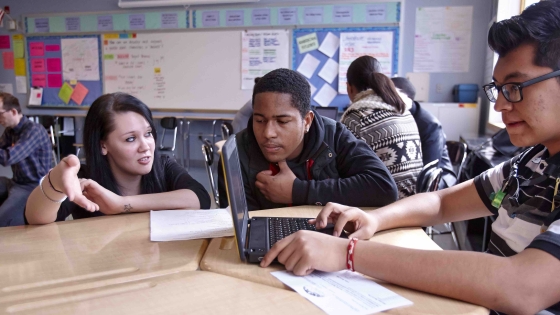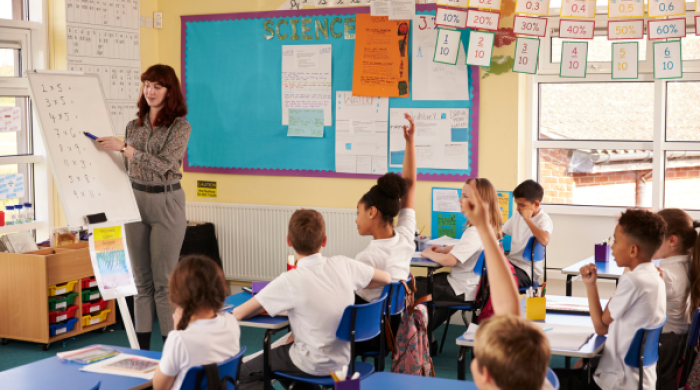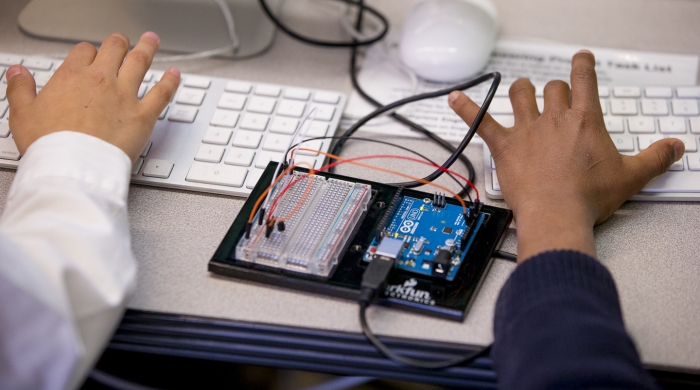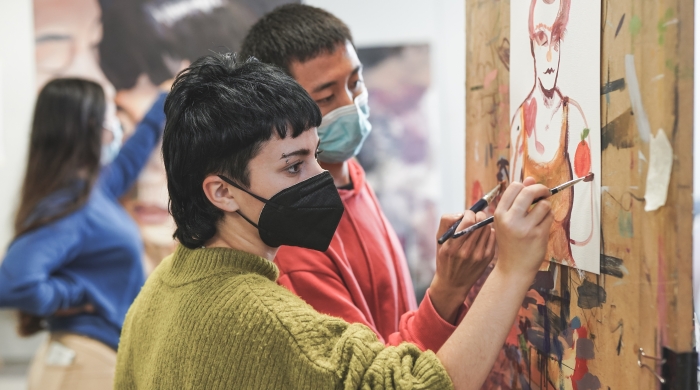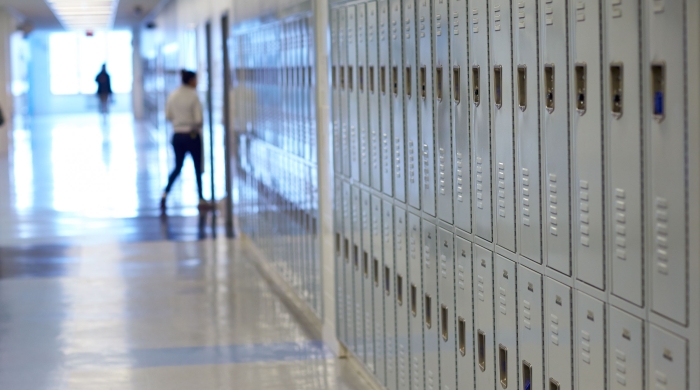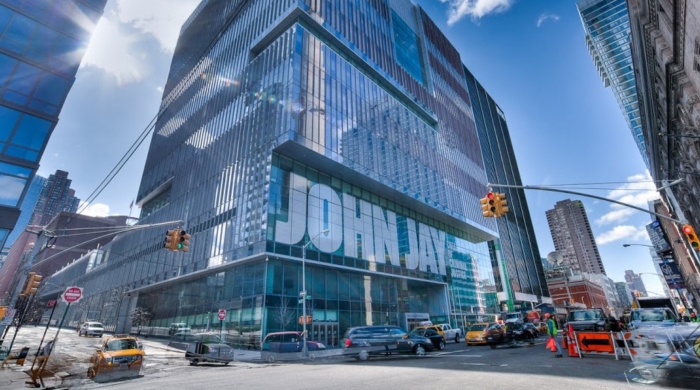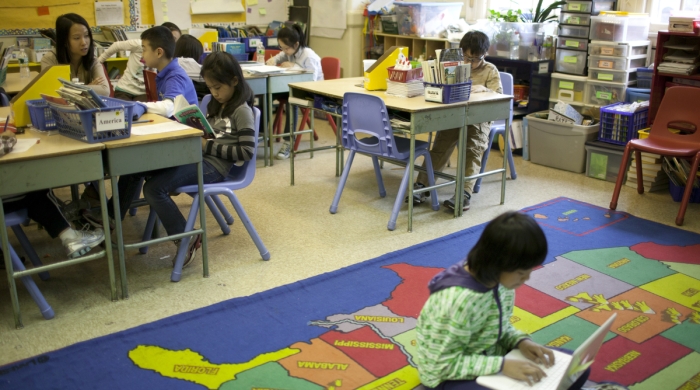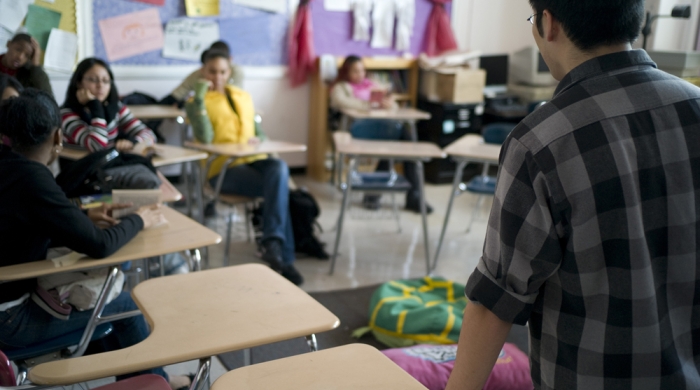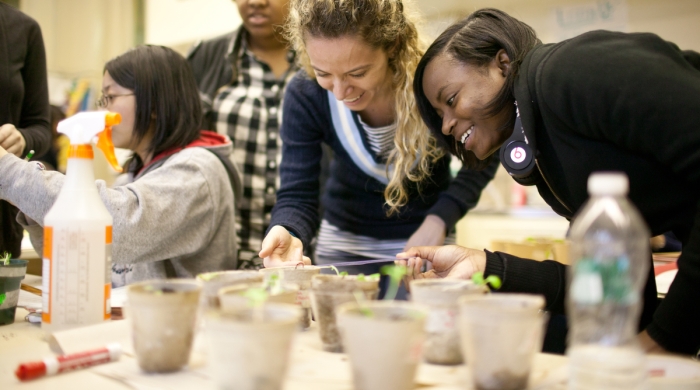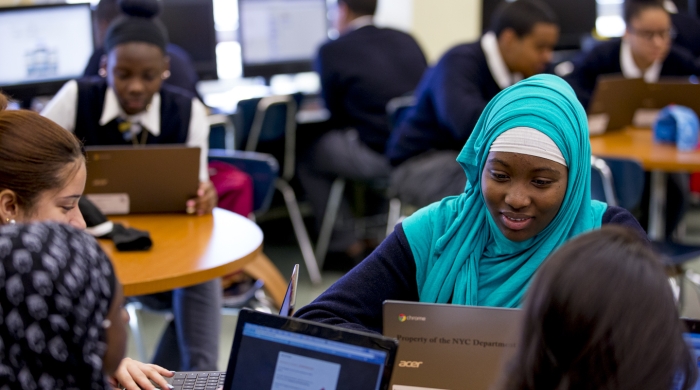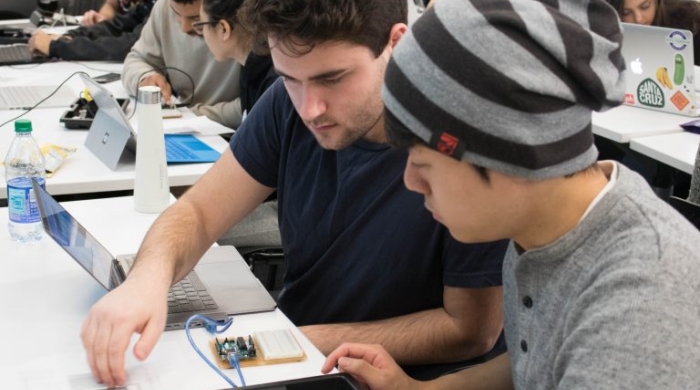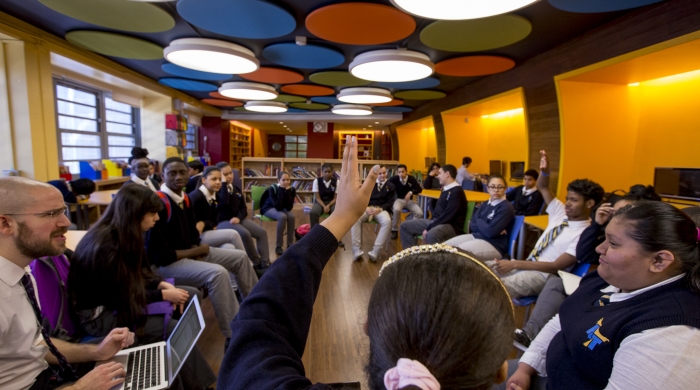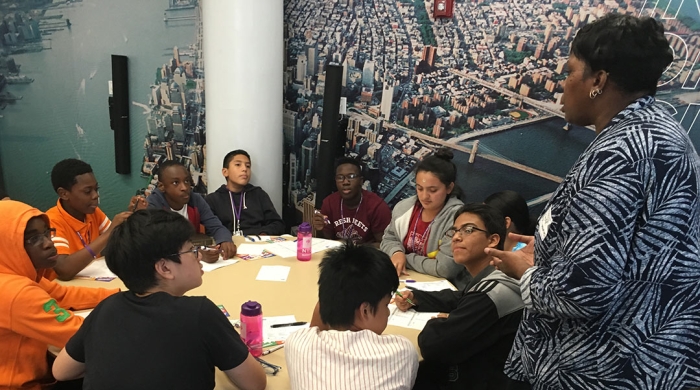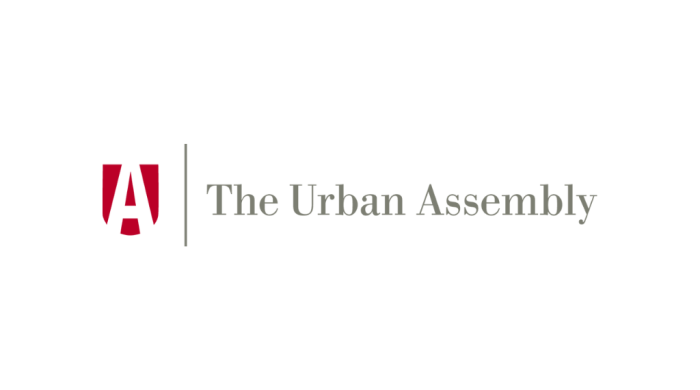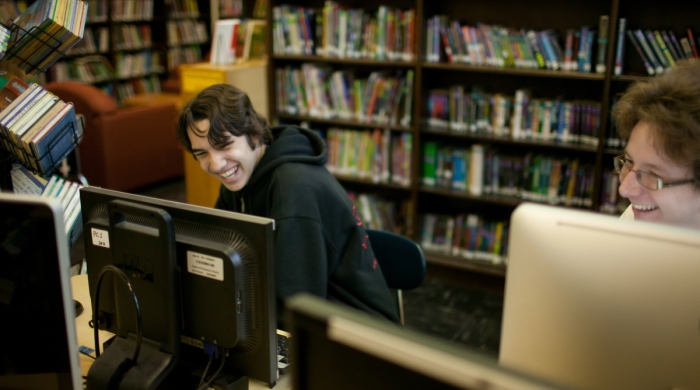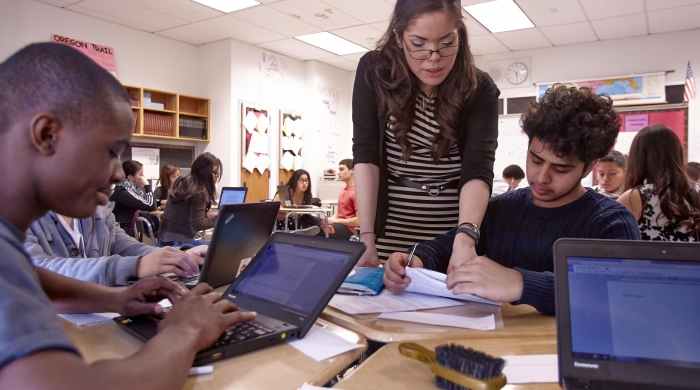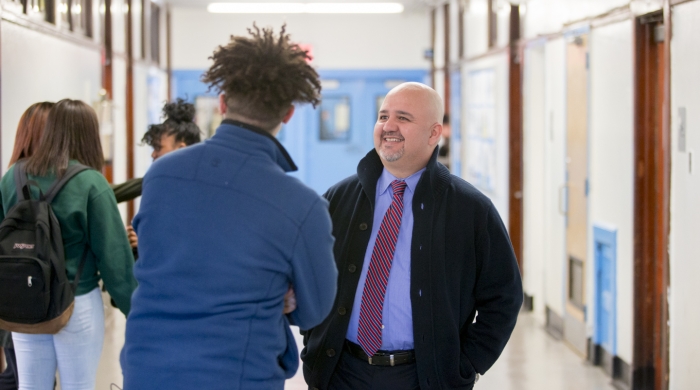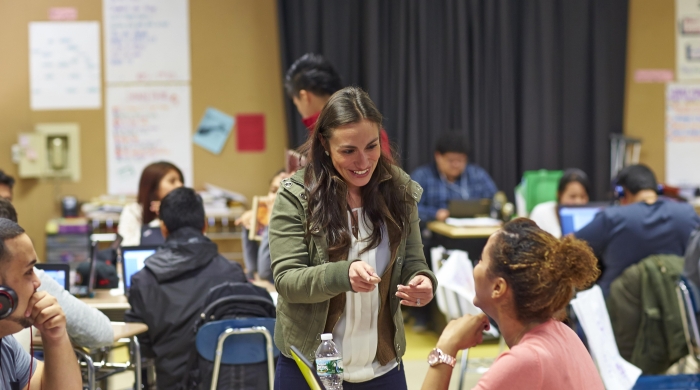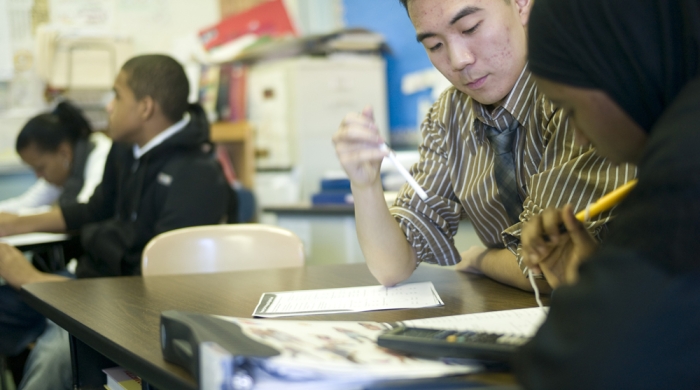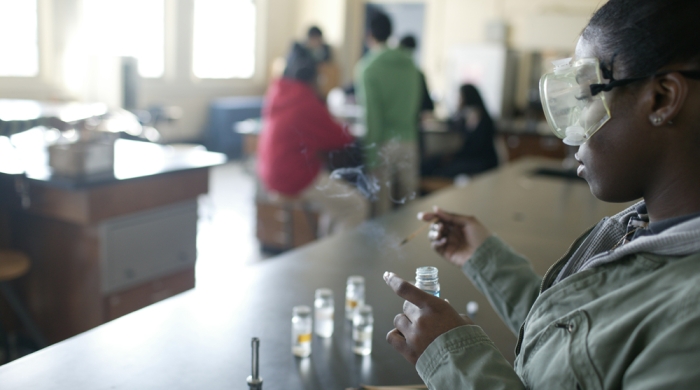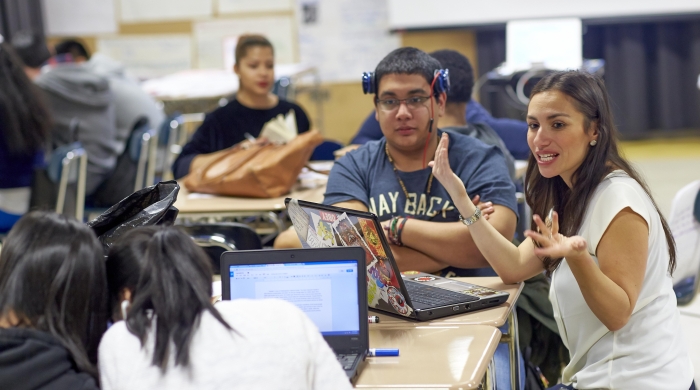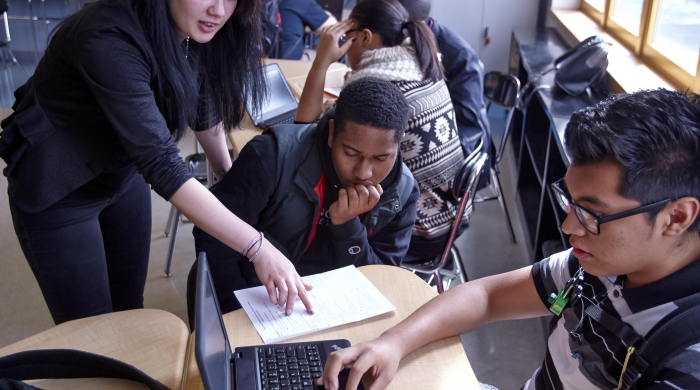Taking Flight: Exploring Nest Student Outcomes After High School
What happens after high school for students in the Autism Nest Program? The Taking Flight study is following Nest graduates as they move into adulthood, exploring education, work, relationships, and quality of life metrics.
Expanding Opportunities for Transfer High School Students
In partnership with MDRC, the Research Alliance is studying the implementation and impact of innovative career-connected learning strategies in 10 NYC transfer schools.
Assessing the Quality and Reach of Student Pathways to Economic Security
The Research Alliance and MDRC are conducting an in-depth, exploratory study of NYC’s Pathways initiatives, including the FutureReadyNYC and Career Readiness and Modern Youth Apprenticeship (CRMYA) programs. The study is examining how the programs are being implemented, how student and school characteristics are related to student participation and access to career-connected learning opportunities, and how participation is associated with student outcomes.
Study of Saga’s Online Math Tutoring
Can online tutoring boost math achievement? As schools work to recover from pandemic-related learning disruptions, there is keen interest in the potential of high-dosage tutoring to accelerate students' progress in core subjects. In partnership with MDRC, the Research Alliance is studying the implementation and impact of Saga Education's live-online tutoring platform in NYC high schools.
CTE Innovation and Impact: Lessons from NYC
This project is leveraging the diversity and scale of NYC's CTE programs to learn about the conditions under which CTE is most effective
Understanding Disparities in the Impact of Covid-19 for High School Students
This study will examine how the pandemic shifted high school students’ academic trajectories, especially in historically underserved and marginalized communities.
Disrupting School Pushout
Exploring how systemic racism and disinvestment drive the phenomenon of "school pushout" in NYC, this study examines the impact of neighborhood-, school-, and individual-level factors on students' high school completion.
Identifying Strong Transfer Pathways
The Research Alliance is conducting a case study of John Jay's CUNY Justice Academy to understand the practices it uses to support transfer students.
Supporting the #DegreesNYC Data Co-op and Learning Network
This project will work to identify key indicators of being on track for success in postsecondary education and career pathways, and empirically test the relationship between those indicators and student outcomes.
Evaluating the ExpandEd Schools STEM Options Program
The study is aimed at better understanding how many and which students are interested in STEM apprenticeships, documenting students’ experiences in the programs, and assessing how the programs shape students’ interest and engagement in STEM subjects and fields.
Exploring How High Schools Can More Effectively Serve Immigrant Youth
The Internationals Network for Public Schools (INPS) is a system of public high schools that serve recently arrived students with low levels of English language proficiency.
Collaboration with the Student Success Network
The Student Success Network (SSN) is a group of about 80 youth development and education organizations (including schools) that have coalesced around the goal of measuring and improving students’ social emotional learning skills.
Frameworks to Support Teaching and Learning
The Research Alliance is continuing our partnership with the NYC DOE to define, measure, and support effective learning environments in NYC schools.
Evaluating the Reach, Quality, and Impact of Computer Science for All in NYC
CS4All is a 10-year, $81 million public-private partnership between the City of New York and the private sector, designed to bring computer science education to every student in NYC public schools.
Equity, Access, and Diversity in NYC Schools
One of the most significant challenges facing schools in New York City and around the nation lies in their relationship to larger societal inequalities.
Supporting AIR's Study of Deeper Learning
The Research Alliance is collaborating with AIR to support the study’s examination of NYC schools that have adopted deeper learning principles and practices.
Study of the Urban Assembly Network
The Research Alliance for New York City Schools is collaborating with MDRC on a rigorous study of the effects of the Urban Assembly school support network on students’ academic and social emotional outcomes.
Evaluating P-TECH
MDRC is conducting a study of the NYC P-TECH Grades 9-14 school model. The Research Alliance is supporting MDRC’s work by advising on research design and analyses, helping identify appropriate samples of students for the study, and constructing longitudinal data files needed to evaluate P-TECH’s implementation and impact.
Evaluating the Expanded Success Initiative
The Expanded Success Initiative (ESI) was designed to improve the educational experiences and outcomes of Black and Latino young men in high schools across the City. To gain an understanding of whether, and how, ESI benefitted students, the Research Alliance undertook a five-year mixed-methods longitudinal evaluation of the initiative.
High School Closures in New York City
Between 2002 and 2008, 29 low-performing high schools were designated for closure in New York City. This report presents the results from the first rigorous study of the impact of these closures on students’ academic performance, attendance, and mobility. (2015)
Understanding the Impact of Small High Schools of Choice
Since 1999, the landscape of New York City high schools has changed dramatically. Over 150 new high schools have opened, with an average enrollment of just over 100 students per grade.
The NYC Partnership for College Readiness and Success
This partnership between CUNY, the NYC DOE, and the Research Alliance is bringing together the key stakeholders who focus on secondary and post-secondary education in New York City, enabling researchers to link together CUNY and DOE student data.
Evaluating iMentor’s School-Wide College Ready Program
iMentor is a nonprofit organization that provides school-based mentoring, with a focus on helping students develop the skills they need to be prepared for and succeed in college.
Keeping 9th Grade Students “On Track” to Graduation
As early as 9th grade, student engagement and achievement can offer strong signals about which students are on the path to on-time graduation, and which are at risk of dropping out.
Reclassification of English Language Learners in NYC
In the 2012-2013 school year, the NYC Department of Education served 145,000 students designated as English language learners (ELLs)—nearly 15 percent of the total student population.
Technical Assistance for the Teagle Foundation’s College-Community Connections Program
The Teagle Foundation’s College-Community Connections (CCC) program aims to help financially disadvantaged high school students overcome the barriers they face in pursuing an undergraduate degree.
Supporting the Development and Evaluation of Early Warning and College-Readiness Indicator Systems
The power of early warning and college-readiness indicator systems is that they take messy, seemingly overwhelming problems—such as getting students to graduate from high school and persist in college—and focus attention on opportunities to successfully intervene.

